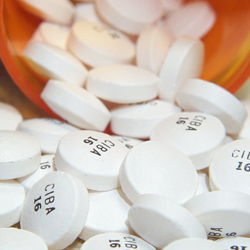
Click image for a summary of ADHD drug warnings, studies and adverse reaction reports filed with the US FDA
Note from CCHR: The US Drug Enforcement Administration classifies Ritalin and other ADHD drugs in the same class of highly addictive drugs as cocaine, morphine and opium— they are listed as schedule ll drugs, with the highest potential for abuse. In addition, 31 drug regulatory warnings and 20 studies have confirmed that ADHD drugs such as Ritalin, Adderall and Concerta, prescribed to 5 million American children, can cause heart problems, stunted growth, seizures, anxiety, suicide, violence, depression, mania, psychosis, hallucinations and death. The point of the article below is that kids and adults are getting addicted to these dangerous drugs though illicit use—in other words, not being “prescribed” them—but it misses the point that the drug warnings we cite above, as well as the DEA classification of ADHD drugs as highly addictive—apply to anyone taking them, whether prescribed by a psychiatrist, a doctor or sold on the street. That is the smoking gun. See all ADHD drug warnings and adverse reaction reports here
“When you think of drug rehab, you probably think cocaine, heroin, oxycotin, but some different drugs are sending an exploding number of kids into treatment these days – prescriptions for ADD and ADHD.”
Annie Gendaszek was introduced to ADHD medications when she was just 13 years old by a friend with a prescription.
“I really liked the side effect and how it made me feel, so I sought out my own prescriptions from doctors,” said Gendaszek.
By the time she was in college, she was abusing the drug daily and knew she needed help.
“Significant weight loss, irritable moods, I started lying, being dishonest, stealing,” she said.
Dr. Nancy White is an addiction specialist with Bradford Health Services in Huntsville. The facility treats both adolescent and adult patients.
“We do get a lot of patients that were never prescribed the medication and they get them from their friends or buy them off the street. Happens a lot in schools,” said White.
Experts blame the fact that the drugs are easy to obtain and socially acceptable. White said parents need to have candid conversations with their kids about the misuse of prescription medications.
“‘This is prescribed by a doctor for this particular problem and that is what it is to treat. It’s not to be used in any other way and not given to any of your friends.’ I think that is a very important thing to tell kids when they get these prescriptions,” she said.
“As long as prescription medications have been around, there has been a teenager around willing to abuse it,” said Dewayne McCarver.
Read the rest of the story here


SHARE YOUR STORY/COMMENT